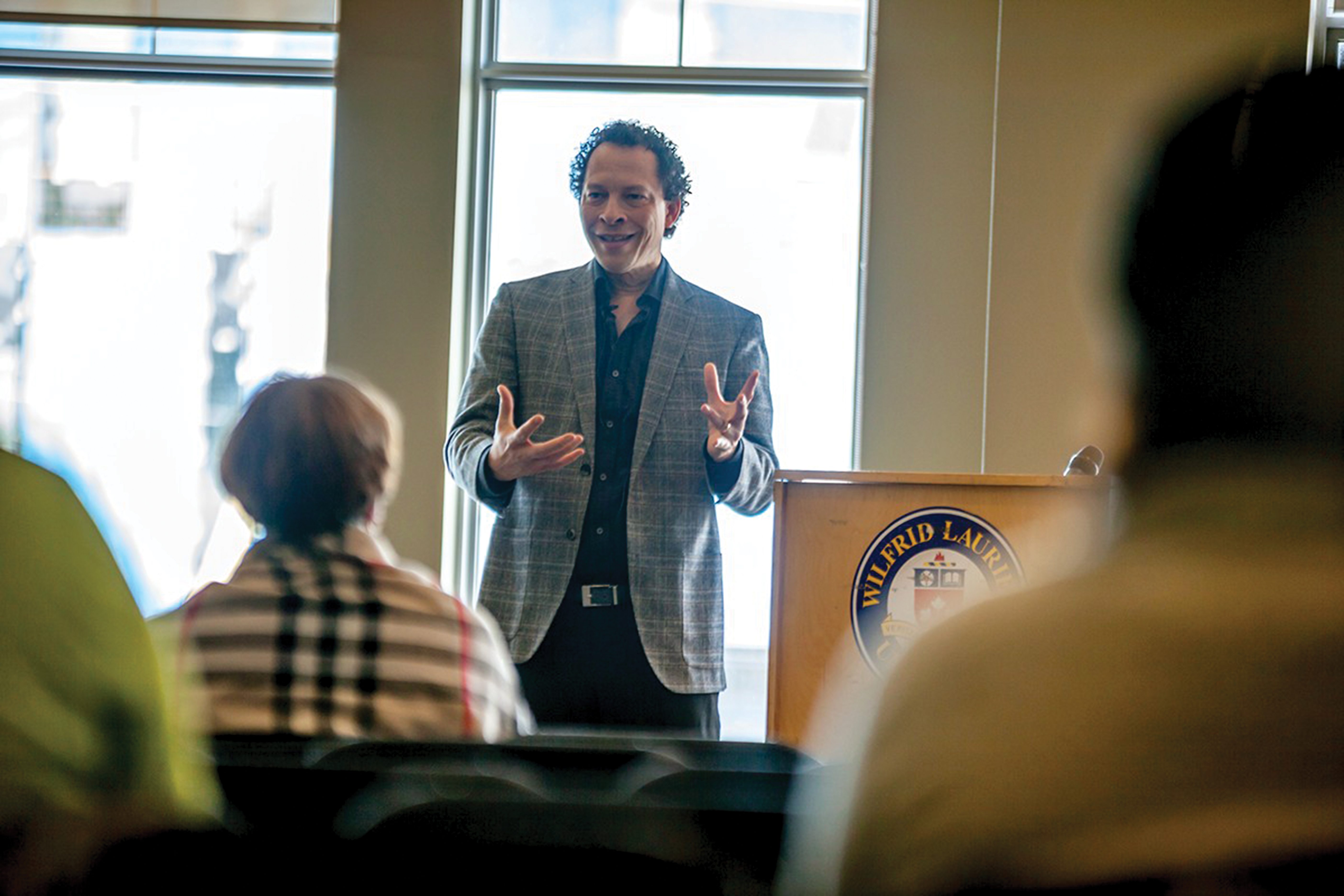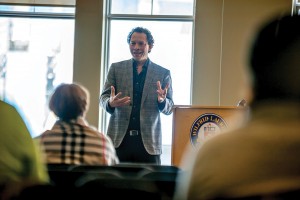Author Lawrence Hill at screening of Book of Negroes

The third episode of The Book of Negroes, based on the novel by Lawrence Hill, was screened on campus

On Jan. 15, Wilfrid Laurier University played host to a special screening of the third episode of the CBC mini-series The Book of Negroes.
Among faculty and staff — including Laurier president Max Blouw — attending the event as special guests were writer and director of the miniseries, Clement Virgo, and the author of the book on which the series was based, Lawrence Hill.
“With a viewing audience of 1.7 million for the first episode … The Book of Negroes is Canada’s most watched televised event in the last 25 years,” said Carol Duncan, chair of the department of religion and culture.
She recognized the event as “a major achievement in Canadian arts.”
During the introduction to the event, a number of students appeared outside the door looking to get in and were turned away because the room was already packed.
Episode three, which doesn’t air on the CBC until this Thursday, was centered on the revolutionary war and the actions of the protagonist, Aminata, as her friends take different sides in the conflict.
“I really loved the way Clement handled this as director … you really see a diversity of thought. Why should all people of African descent feel the same way, have the same political views, have the same military views, side with the same side in the American Revolution?” Hill said after the episode. “It’s a little much to expect that everyone would think and feel and philosophize the same way.”
Following the viewing of the episode, Virgo and Hill took questions from the audience.
One student asked Hill why the book and show are from the perspective of a woman since he is a male author.
“I never really thought about writing from a man’s perspective, it was a woman’s perspective that came to me. I wanted the character to catch babies, to be a midwife, to have the trouble of losing her own children even as she had other women’s babies,” Hill explained. “I wanted to tell the story from the perspective of somebody who would have a great deal to lose and I couldn’t imagine who might have more to lose than this young pre-pubescent girl who’s growing up in West Africa.”
Virgo also spoke on what guided the experience of filming sequences that do not have a direct parallel in the novel.
“My favourite [part of adapting the novel] was how do we keep the love story going, because at first glance you might think this is about slavery but for me it’s more than that. It’s from a point of view of love,” he said. “Love stories are so difficult because what do you do after they walk in the fields and hold hands and do the montage of love? You’ve got to bust them up and slavery is a great way to keep busting them up.”
Following questions, a long line of students and staff stayed behind for the chance to talk to Virgo and Hill and have their copies of The Book of Negroes autographed.
“I’m really overwhelmed … but in a positive way” said fourth-year student Cheyenne Gold after the event. “It’s such an exhilarating thing … as a viewer and a fan of Lawrence Hill’s work to see a piece of literature come to life in a visual form.”
Following the event, Hill spoke about the importance of his book and the adaptation.
“I think that most Canadians of all ages are, for the most part, unaware of African-Canadian history, they’re unaware of the story of the black loyalists,” he said. “If you don’t learn those things when you’re a student, there’s no hope for you. When you’re a student you should be opening up and challenging yourself and expanding your universe and learning things that are disturbing and difficult that really open you.”

